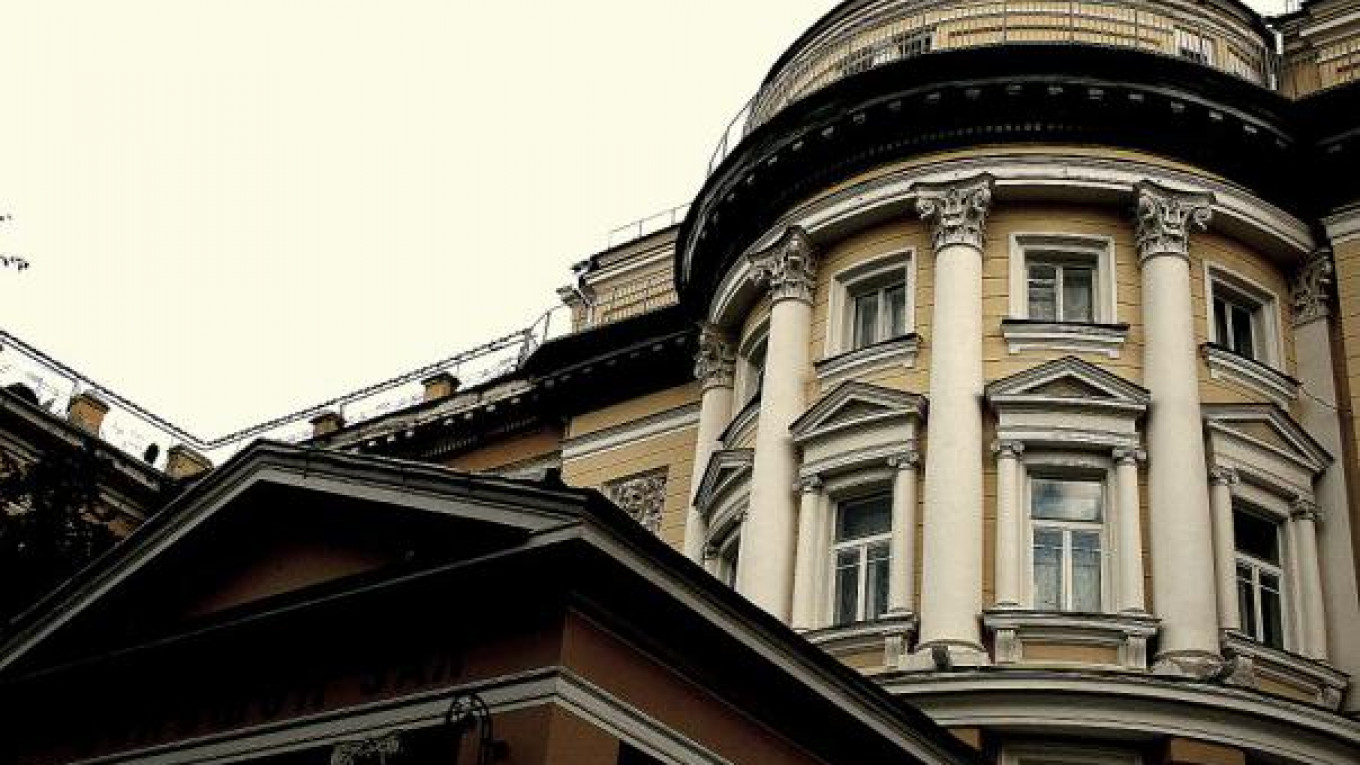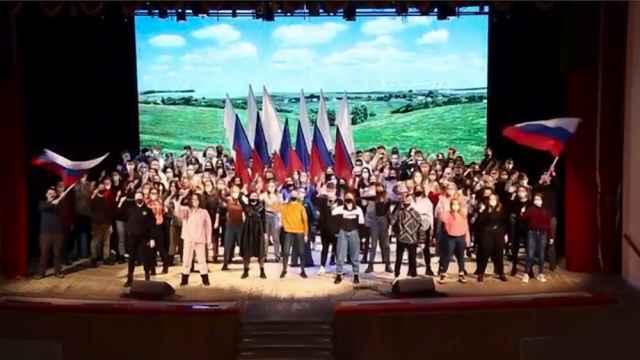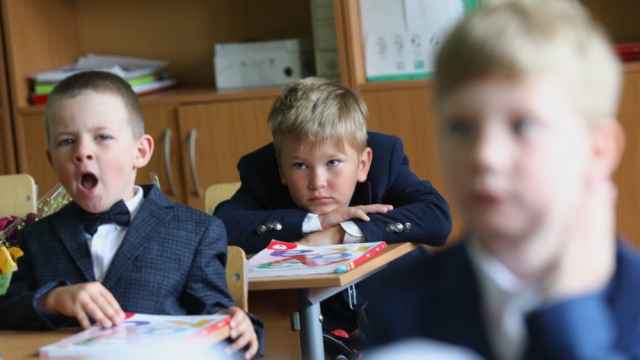It started in a high school in Bryansk, a town near the Belarusian border. Video emerged of a school director telling students not to believe Russian opposition leader Alexei Navalny. They should be grateful to Russia's current leadership, the director said.
First, the video shocked Russia. Then, more emerged.
This time, it came from a university in the Siberian city of Tomsk. A school teacher told his pupils that “[they] do not remember the 1990s” and so cannot appreciate how Putin's leadership has saved Russia.
“If a state has no corruption,” the university professor said, “that means it's a state that nobody needs.”
A number of videos have emerged from classrooms across Russia in recent weeks that suggest an alarming level of state-orchestrated indoctrination is taking place in the country's schools and universities.
But the brainwashing, it seems, is not confined to provincial Russian high schools and institutes. It also exists in the country's most prestigious institutions.
The latest institution to be caught in the propaganda row is Moscow's prestigious State Conservatory, which produces some of the best musicians and composers in the world.
Last week, a student at the music school uploaded a video that showed an instructor describing opposition politicians, activists and liberal journalists as“fifth columnists” and “traitors.”
The instructor made a student read the list of traitors to the rest of the classroom.
The list included opposition leader Alexei Navalny, former Prime Minister Mikhail Kasyanov and well-known songwriter and bard Andrei Makarevich.
Danil Pilchen, the up-and-coming composition student who was forced to read the letter, did so ironically, mocking the teacher and her politics?. In the video, the instructor threatens to expel Pilchen for reading the text sarcastically.
Pilchen became a social media celebrity overnight. Not surprisingly, he was among the 1,030 detained protesters at Moscow's Navalny-led anti-corruption protest two days later.
Even though Professor Farida Kulmukhametova resigned after a discussion with the conservatory's rector on March 29, her “list of traitors” has divided Russia's classical music world.
Kulmukhametova was new at the Conservatory and an unknown figure among composers, music critics and students. In fact, her strictly musical expertise was limited, it turns out.
She had been specifically brought in to the prestigious institution in order to teach a program called “The Basics of the Cultural Politics of Russia,” a new course recommended by the Culture Ministry which started in September.
The incident seems to have polarized Moscow's composers, music professors and students.
“A part of the community defended it," says Julia Bederova, a well-known Russian classical-music critic. "They said: 'why not?'”
But the majority of Russia's music world was in uproar. Students and teachers submitted two petitions to the rector of the Conservatory, Larisa Slutskaya.
The first, which called for the immediate resignation of Kulmukhametova was successful. But the second, demanding the withdrawal of the course has not received an answer.
“The Conservatory and the Culture Ministry is keen to portray this as a row between the students and a specific teacher,” says Bederova. “But there is a much wider issue at stake.”
The specific lesson was made public thanks to the video, she says, but nobody knows what happened during the rest of the half a year Kulmukhametova was teaching at the Conservatory.
But in an interview to radio station Ekho Moskvy, Danil Pilchen gave a taste of the rest of the program, which students regarded “completely useless.”
“Sometimes, the course is measured,” he said. “But other times we are told about Russia's traditional values: that marriage is for life, that women need to do laundry and other propaganda of social norms.”
Some students, he said, enjoy the classes and, in any case, they simply need to pass the course to get the grades.
But Pilchen said he sees the course as “entertainment”:
“I like going there and messing with this brainwashing,” he says.
A Message from The Moscow Times:
Dear readers,
We are facing unprecedented challenges. Russia's Prosecutor General's Office has designated The Moscow Times as an "undesirable" organization, criminalizing our work and putting our staff at risk of prosecution. This follows our earlier unjust labeling as a "foreign agent."
These actions are direct attempts to silence independent journalism in Russia. The authorities claim our work "discredits the decisions of the Russian leadership." We see things differently: we strive to provide accurate, unbiased reporting on Russia.
We, the journalists of The Moscow Times, refuse to be silenced. But to continue our work, we need your help.
Your support, no matter how small, makes a world of difference. If you can, please support us monthly starting from just $2. It's quick to set up, and every contribution makes a significant impact.
By supporting The Moscow Times, you're defending open, independent journalism in the face of repression. Thank you for standing with us.
Remind me later.






